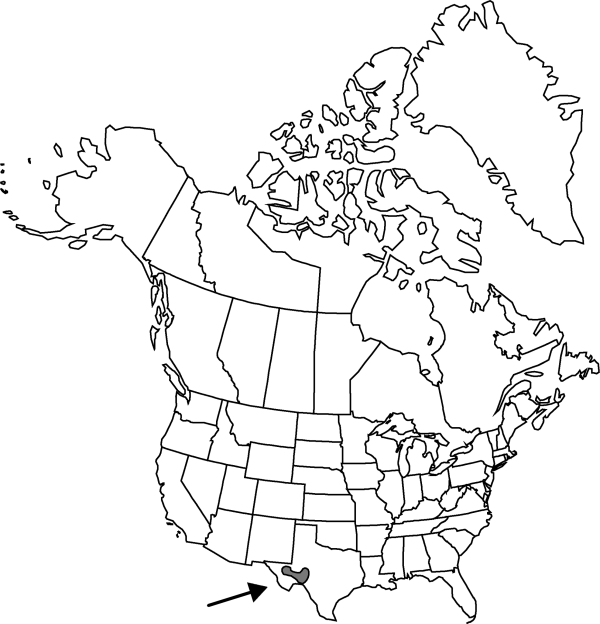Difference between revisions of "Opuntia strigil"
Proc. Amer. Acad. Arts 3: 290. 1856.
FNA>Volume Importer |
imported>Volume Importer |
||
| (6 intermediate revisions by 2 users not shown) | |||
| Line 6: | Line 6: | ||
|place=3: 290. 1856 | |place=3: 290. 1856 | ||
|year=1856 | |year=1856 | ||
| + | }} | ||
| + | |special_status={{Treatment/ID/Special_status | ||
| + | |code=E | ||
| + | |label=Endemic | ||
}} | }} | ||
|basionyms= | |basionyms= | ||
| Line 23: | Line 27: | ||
|elevation=900-1400 m | |elevation=900-1400 m | ||
|distribution=Tex. | |distribution=Tex. | ||
| − | |discussion=<p>Opuntia strigil is reminiscent of a brown-spined form of O. chlorotica.</p> | + | |discussion=<p><i>Opuntia strigil</i> is reminiscent of a brown-spined form of <i>O. chlorotica</i>.</p> |
|tables= | |tables= | ||
|references= | |references= | ||
| Line 32: | Line 36: | ||
-->{{#Taxon: | -->{{#Taxon: | ||
name=Opuntia strigil | name=Opuntia strigil | ||
| − | |||
|authority=Engelmann | |authority=Engelmann | ||
|rank=species | |rank=species | ||
| Line 46: | Line 49: | ||
|publication title=Proc. Amer. Acad. Arts | |publication title=Proc. Amer. Acad. Arts | ||
|publication year=1856 | |publication year=1856 | ||
| − | |special status= | + | |special status=Endemic |
| − | |source xml=https:// | + | |source xml=https://bitbucket.org/aafc-mbb/fna-data-curation/src/2e0870ddd59836b60bcf96646a41e87ea5a5943a/coarse_grained_fna_xml/V4/V4_250.xml |
|subfamily=Cactaceae subfam. Opuntioideae | |subfamily=Cactaceae subfam. Opuntioideae | ||
|genus=Opuntia | |genus=Opuntia | ||
Latest revision as of 21:57, 5 November 2020
Shrubs, erect to sprawling, to 1 m. Stem segments not easily detached, green, flattened, obovate to circular, 10–17 × 8.5–14.5 cm, nearly smooth, glabrous; areoles 7–10 per diagonal row across midstem segment, oblong to elliptic, 3–5 × 2.5–3.5 mm; wool yellow-brown to brown, aging gray. Spines 5–8(–10) per areole, best developed in distal areoles, usually reflexed, spreading or some erect in marginal areoles, red-brown (often with darker annular rings) with yellow tips, aging blackish, straight or weakly curved, not or slightly flattened near bases; central spines 1(–2), much longer and stouter, ± acicular, 10–40 mm. Glochids crowded in crescent at adaxial edge of areole and subapical tuft, radiating and well developed in old stem segments, yellow, to 3 mm. Flowers: inner tepals cream to lemon yellow, orangish abaxially on midvein areas, broadly spatulate-apiculate, 20–30 mm; filaments cream-yellow; anthers pale yellow; style pale cream; stigma lobes pale greenish yellow. Fruits red, subspheric, 15–28 × 12–23 mm, fleshy, glabrous, spineless; umbilicus 4–5 mm deep; areoles 24–36. Seeds tan, subcircular to reniform, flattened, warped, 3–4 × 2.7–3.5 mm, 2 mm thick; girdle protruding 0.5–0.8 mm. 2n = 22, 44.
Phenology: Flowering spring (Apr–May).
Habitat: Desert scrub, limestone hills and plains
Elevation: 900-1400 m
Discussion
Opuntia strigil is reminiscent of a brown-spined form of O. chlorotica.
Selected References
None.
